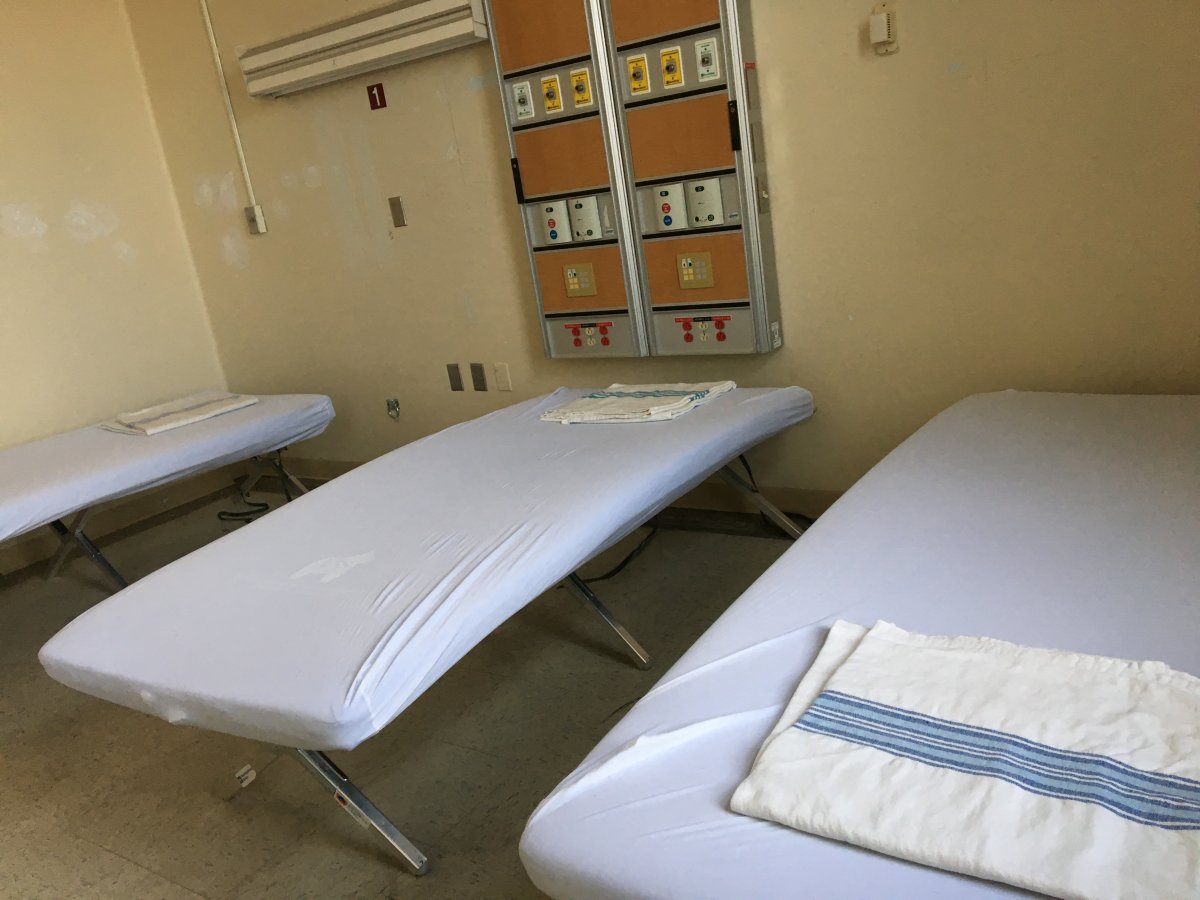Five homeless shelters in Montreal are experiencing COVID-19 outbreaks and that is limiting their capacity to welcome people.

As winter inches closer, advocates warn that if officials don’t take action soon, the city could be on the verge of a humanitarian crisis.
“We can actually accommodate typically about 140 people very comfortably with all of the distancing protocols in place, but given some of the latest outbreaks that have happened from the middle of October through now, we’ve been to the area of around 80 people,” said Sam Watts, CEO of the Welcome Hall Mission.
According to Montreal’s Public Health, since October, there have been 79 cases of COVID-19 among the homeless population and nine workers have been infected.
There are currently four outbreaks in five different shelters.
“The result of that is that, if everybody is in the same situation, we’re creating the potential for a humanitarian crisis on the streets of Montreal,” warned Watts.
Watts says so far, various shelters in the city have been coordinating their response to outbreaks and referring people to each other.
But with a larger number of infections and shelters affected, that can no longer be done.
“Now, we’re kind of in this imperfect storm where everybody is in the same situation,” Watts said.
Homeless advocates say they need help, such as more emergency shelters.

Get weekly health news
“The homelessness problem, especially in the Milton area, Cabot square, is ballooning,” said Nakuset, the executive director of the Native Women’s Shelter.
“If something doesn’t happen soon, if new measures are not taken, there will be a tragedy.”
James Hughes, the Old Brewery Mission’s CEO and executive director, wants the province to intervene with additional 24/7 shelters such as the one that opened this summer at the site of former hospital Hotel Dieu.
“That was some real progress. The Hotel Dieu model is working and we’ve been advocating to have another Hotel Dieu-type facility to add additional capacity, but so far we have not seen any announcements of that kind,” said Hughes.
Hughes says the Hotel Dieu 24/7 model allows for intervention workers and housing specialists to follow and help clients to ultimately find permanent housing for them.
“It’s a place where people can come and really settle in and they’re not forced to leave and wander around during the day,” Hughes said.
The City of Montreal says it is coordinating efforts with public health.
The local health authority, the CIUSSS Centre-Sud-de-l’Île-de-Montréal, says it is working to add 323 more beds for the months of November and December, bringing the total up to 1,550.
It will also add more warming stations throughout the city and have an emergency shelter on standby if needed.
Watts, however, deplores that things are left to the last minute and would like to see more permanent measures set up.
“It’s just too bad that it wasn’t done in the summer time,” Watts said. “I’ve been in this role for five years and so it’s five consecutive times that we’ve arrived very late in the game with the need to do something on an emergency basis.”









Comments